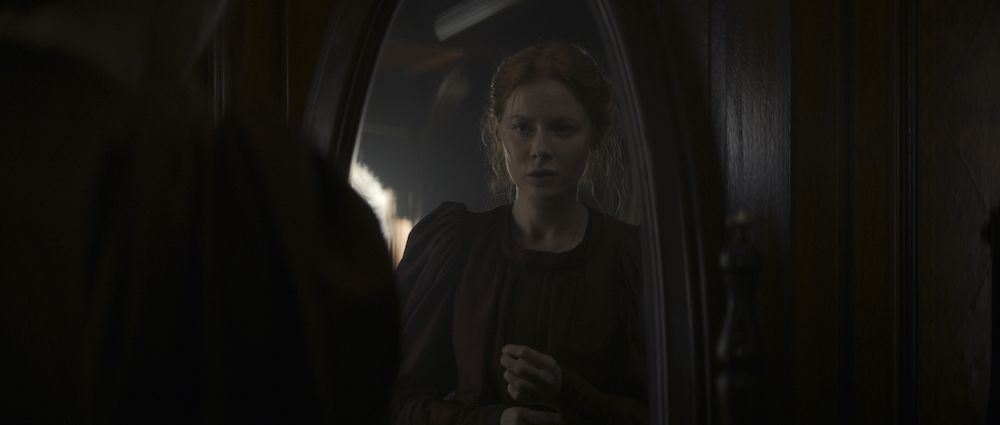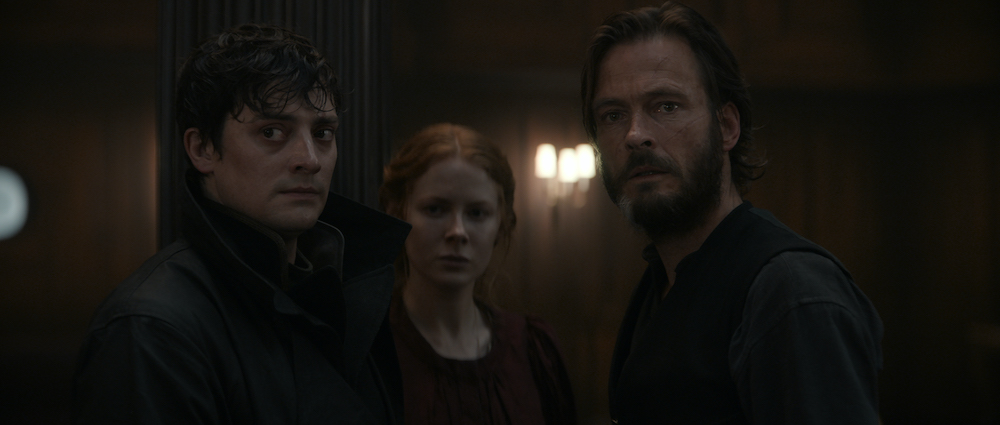Netflix’s ‘1899’ is a sci-fi mystery series created by Baran bo Odar and Jantje Friese. The duo is known for creating the time-travel show, ‘Dark’, which features convoluted timelines and complicated relationships between characters. While both shows are very different from each other, there are some fundamental similarities between them, including certain trademarks of their creators. Both of them rely heavily on symbolism and a deeper meaning to certain lines and dialogues, which repeatedly appear throughout the story.
In ‘1899’, which follows the story of a group of passengers aboard Kerberos, there are a couple of lines that catch our attention. It is only after the events have taken their course over the season that the meaning of some of them becomes apparent. One of those phrases is “may your coffee kick in before reality does”. What does it mean in the world of ‘1899’? Let’s find out. SPOILERS AHEAD
The Meaning of May Your Coffee Kick in Before Reality Does
While ‘1899’ begins as a period drama set in the titular year, it soon becomes clear that things are not what they seem. From the second episode, the show starts to present several things about its world which seem rather anachronistic. Be it the mysterious bug that opens doors or the presence of old television sets, with every episode, the show throws a hint at the audience that what you see might not be so real. The phrase in question also falls under the same category.

“May your coffee kick in before reality does” is something that you are more likely to read on people’s coffee mugs or their T-shirts. It’s jocular and is particularly relevant to today’s world where most people need to have their morning coffee before they can start with their day’s work, which more often than not follows a repetitive cycle. For most people, the schedule for their days is already fixed and generally sticks to one pattern. It is tedious to think that you are going to get up and do the same thing all over again. A boost of caffeine is generally preferred before people can deal with their day and the new problems it throws their way.
While its meaning can be extrapolated from here to any direction, the basic purpose of the phrase remains the same. When the coffee kicks in, you “wake up”. And that’s where things get interesting in ‘1899’. “Wake up” is the one phrase that is repeated in every single episode of the show. It is also something that connects various characters to each other and is also the first sign that points the audience toward the greater mystery that is revealed in the final moments of the season.
The show begins with a scene where Maura is dragged away and strapped to a chair in a mental hospital. It ends when Henry says “wake up” and Maura finds herself on the ship. This is our first indication that what Maura’s experiencing might not be real. Further, more characters go through a similar experience, and it becomes clear that Maura is only one piece of the puzzle. Every passenger holds a part of the answer that will lead them to the entire truth. To keep this going, the coffee phrase is thrown into the mix in the seventh episode. Ramiro and Anker come across it while going through the books, trying to learn how to steer the ship. The phrase is repeated in all the books. If you translate the phrase, then it turns out that all the books have “wake up” written all over them.
In the same vein, when Maura finds herself out of the 1899 simulation and on the spaceship, she finds the phrase written on a sticky note. Following this, she discovers that the spaceship is named Prometheus, which has the same number of passengers as the steamship that was lost in the sea. And then she receives a message from her brother, Ciaran, who writes: “welcome to reality”. Whether or not her new surroundings are a simulation remains to be seen, but for sure, reality, in some form, has kicked in for Maura. This time, she is not unaware of her situation. Her brain might not be completely free yet, but she does have some idea of what things might look like from here.
Read More: What is The Pyramid in 1899, Explained


You must be logged in to post a comment.